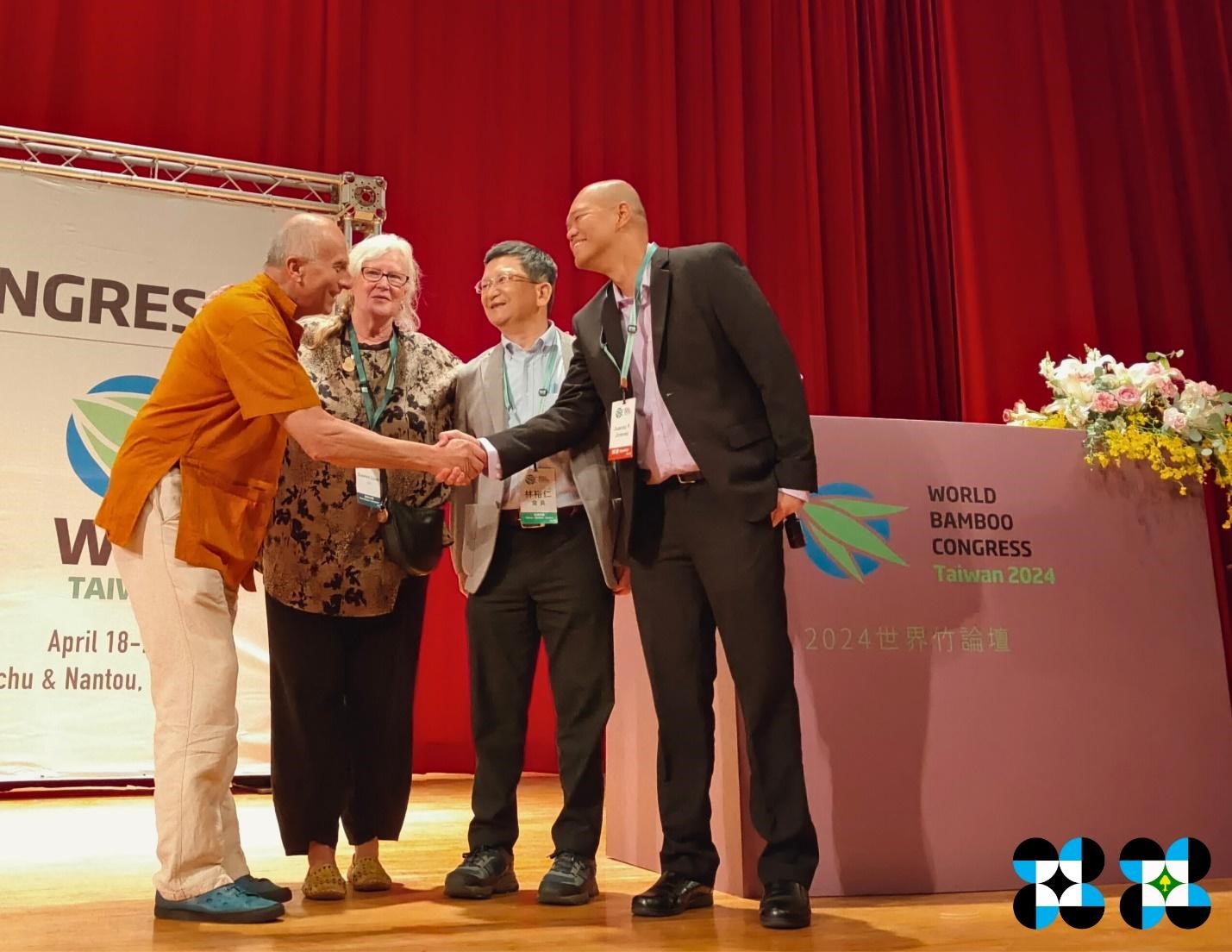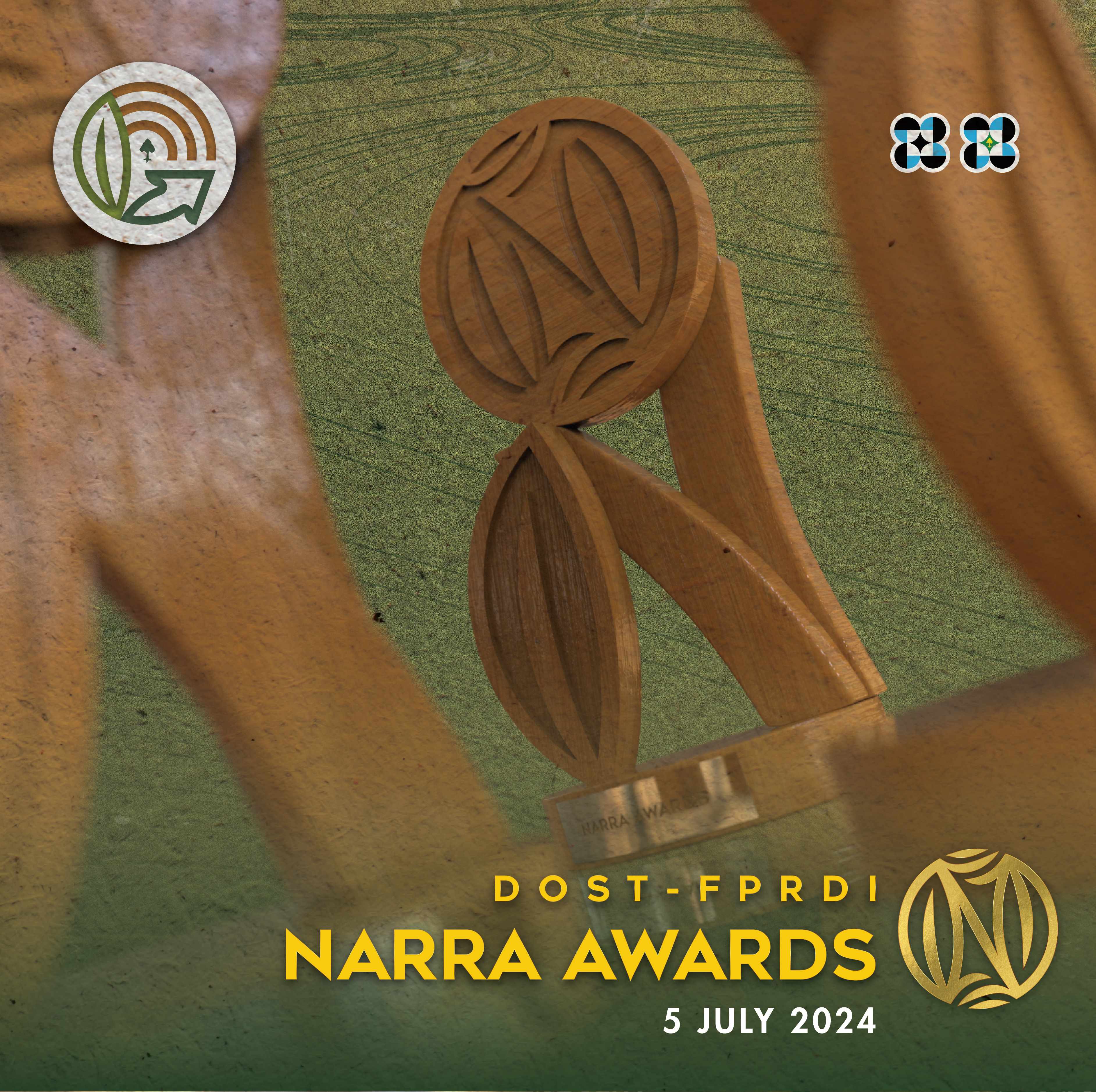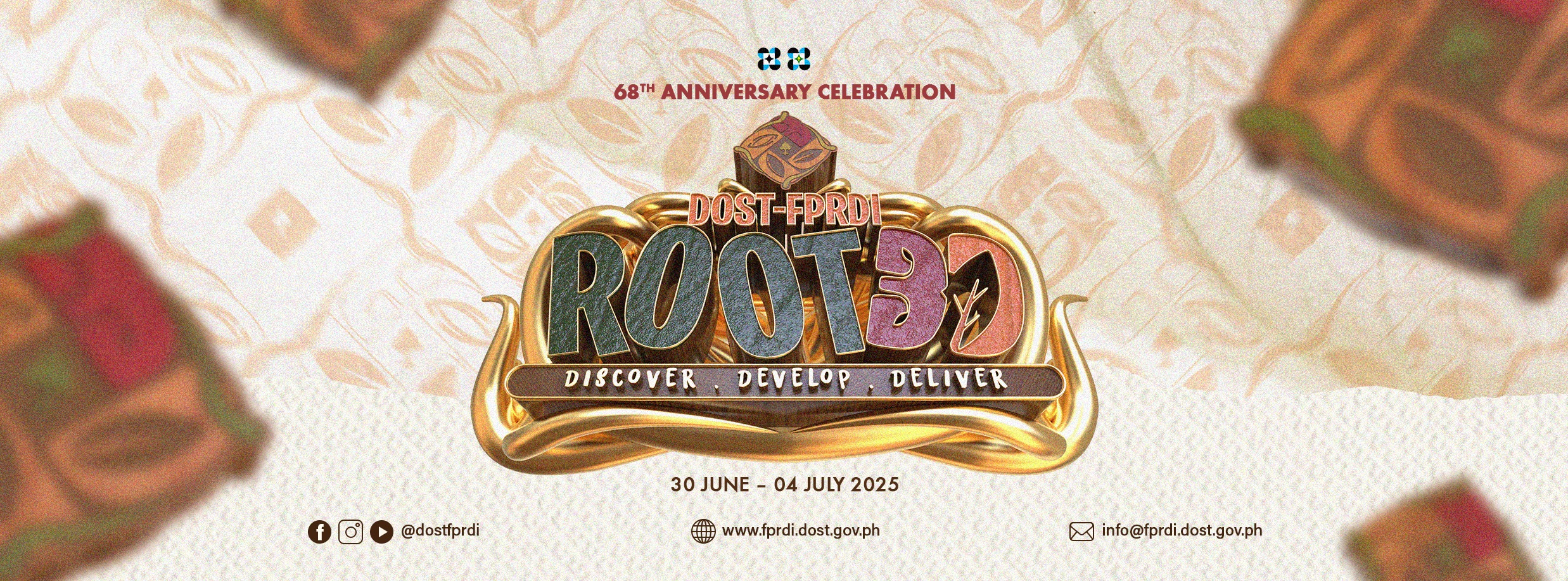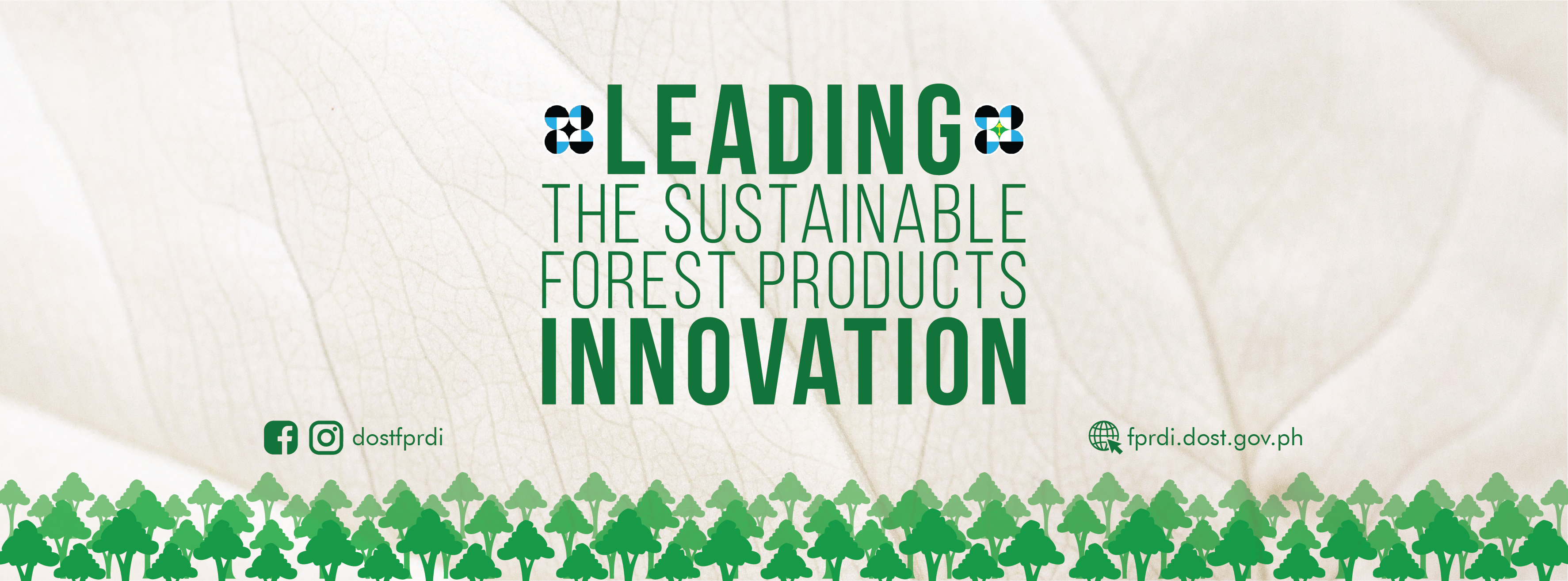DOST wins best paper at the World Bamboo Congress
- Details
The Department of Science and Technology - Forest Products Research and Development Institute (DOST-FPRDI) participated in the World Bamboo Congress held last April 18-22, 2024, in Taiwan. With the theme “Next Generation Bamboo: Solution, Innovation and Design,” the 12th WBC presentations were grouped into three themes: (1) sustainable developments and green economy; (2) innovations in technology and manufacturing; and (3) contemporary design and applications.
Under the second theme, DOST-FPRDI’s study on “Glue-bond performance of Dendrocalamus asper (Schult.) Backer using cold setting and thermosetting adhesives” emerged as the best paper besting out over 120 entries from around the globe.
Authored by Dr. Juanito P. Jimenez, Jr. and For. James Edelbert C. Ramos, the study determined the bonding performance of laminated giant bamboo (D. asper) glued with cold setting and thermosetting adhesives at different surface pairings and glue spread rates. It provided insights on producing the desirable glue bonding parameters for engineered-laminated bamboo production and industrialization of timber bamboo.
 BEST PAPER AWARD. Michel Abadie, President of the World Bamboo Organization (WBO), congratulates DOST Career Scientist 1 Juanito P. Jimenez, Jr. for winning the best paper award. Also in the picture are WBO Founder and Executive Director Susanne Lucas, and a presenter from Taiwan
BEST PAPER AWARD. Michel Abadie, President of the World Bamboo Organization (WBO), congratulates DOST Career Scientist 1 Juanito P. Jimenez, Jr. for winning the best paper award. Also in the picture are WBO Founder and Executive Director Susanne Lucas, and a presenter from Taiwan
DOST to put up Regional FPITC to Boost local forest-based industries in the Philippines
- Details
Local forest-based industries are set to get a boost from the Department of Science and Technology (DOST) with the soon-to-be-established Forest Products Innovation and Training Centers (FPITCs) in the regions.
The DOST- Forest Products Research and Development Institute (DOST-FPRDI) together with the DOST regional and provincial offices are collaborating with state universities and colleges (SUCs) for the establishment of FPITCs, which are envisioned to enhance the capabilities of the forest-based industries in product design, processing and use of wood and non-wood forest products.
“The forest products industry is one of the major players contributing to Philippine economy. We want to take advantage of it by putting up state-of-the-art forest products facilities in the regions. Thru this, novel items, particularly furniture products and fixtures, will be designed and created to compete in the international market,” explained DOST-FPRDI OIC Director Rico J. Cabangon. “The establishment of FPITCs in the regions is seen to propel innovation in the forest-based industries. These Centers are expected to uplift the R&D activities in the regions thereby creating new products and technologies, and to enhance sustainable practices in the use of forest products” he added.
DOST-FPRDI to recognize its sustainability partners during its 67th Anniversary Celebration
- Details
The Department of Science and Technology - Forest Products Research and Development Institute (DOST-FPRDI) will recognize its industry partners who are making an impact in the on-going efforts towards forest products sustainability.
To be launched during the Institute’s 67th Anniversary celebration, the Narra Awards has been conceived to honor micro, small, and medium enterprises (MSMEs), cooperatives, and other industry players that have improved their products and have contributed to their communities after adopting and using the Institute’s technologies or services. The awarding will happen on July 5 at the Limapark Hotel in Batangas.
Similarly, agencies that have helped DOST-FPRDI to amplify its stories and initiatives on environment, forest products utilization, and innovation will also be recognized. These include media partners and local DOST offices.












